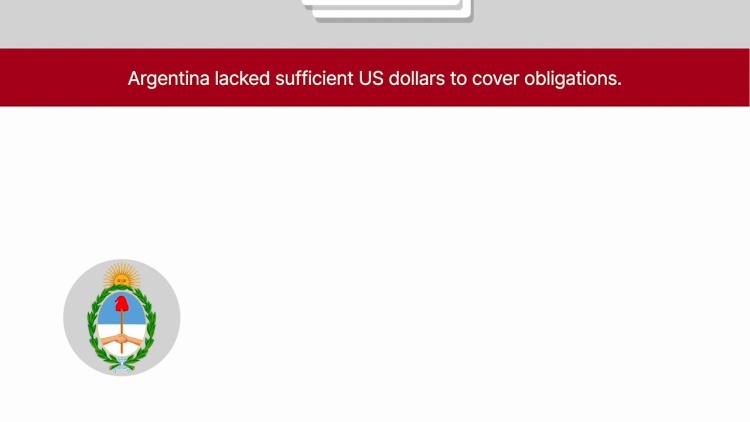Republic of Argentina v. Weltover, Inc.
United States Supreme Court
504 U.S. 607, 112 S.Ct. 2160, 119 L.Ed.2d 394 (1992)
- Written by Megan Petersen, JD
Facts
To assist Argentinian businesses engaging in foreign transactions and remedy problems with these businesses obtaining funds due to the instability of the Argentinian currency, Argentina and its central bank, Banco Central (collectively “Argentina”) (defendants) instituted a foreign exchange insurance contract (FEIC) program in 1981. The FEIC program provided that Argentina would effectively assume the risk of currency depreciation in cross-border transactions involving Argentine borrowers. This was to be accomplished by Argentina selling to its domestic borrowers, in exchange for a contractually determined amount of local currency, the number of U.S. dollars necessary to repay their foreign debts whenever they matured. However, when the FEIC contracts came due in 1982, Argentina did not possess sufficient reserves of U.S. dollars to cover its contractual obligations. Argentina attempted to remedy the situation by refinancing its FEIC-backed debts by issuing government bonds to the foreign creditors. The creditors then had the option of substituting the Argentine government for the original private debtors, or maintaining their relationship with the private Argentine debtor and accepting the Argentine government as a guarantor. Unfortunately, when the government bonds began to mature in 1986, Argentina still lacked sufficient foreign exchange to retire them. Argentina unilaterally extended the time it had to pay the bonds, and offered bondholders substitute instruments as a way to reschedule the debts. Weltover, Inc. (Weltover) (plaintiff) and two other foreign corporations were all holders of the bonds, and refused to accept the rescheduling. They insisted on receiving full payment, and designated New York as the place for payment. Argentina did not pay, and Weltover brought suit against Argentina in federal district court. Weltover relied on the Foreign Sovereign Immunity Act (FSIA) of 1976 as the basis for jurisdiction. Argentina moved to dismiss for lack of subject matter jurisdiction, lack of personal jurisdiction, and forum non conveniens.
Rule of Law
Issue
Holding and Reasoning (Scalia, J.)
What to do next…
Here's why 907,000 law students have relied on our case briefs:
- Written by law professors and practitioners, not other law students. 47,100 briefs, keyed to 996 casebooks. Top-notch customer support.
- The right amount of information, includes the facts, issues, rule of law, holding and reasoning, and any concurrences and dissents.
- Access in your classes, works on your mobile and tablet. Massive library of related video lessons and high quality multiple-choice questions.
- Easy to use, uniform format for every case brief. Written in plain English, not in legalese. Our briefs summarize and simplify; they don’t just repeat the court’s language.





